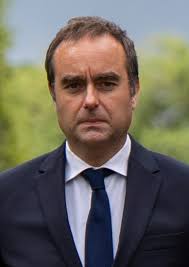An Overview of Sebastien Lecornu’s Role in Defence Policy

Introduction
In the realm of French politics, the role of the Minister of the Armed Forces holds immense significance, especially in an era marked by geopolitical tensions and security challenges. Sebastien Lecornu, appointed to this pivotal position in July 2020, has been instrumental in shaping France’s defence policies and navigating the complexities of military operations both at home and abroad.
Current Events and Policy Focus
Under Lecornu’s leadership, the French Ministry of the Armed Forces is currently focusing on several key areas, including modernisation of military equipment, enhancing the operational capacities of armed forces, and strengthening international alliances. Lecornu has publicly emphasised the importance of the 2023-2030 Military Programming Law, which aims to increase defence spending significantly to ensure that French forces remain effective in a rapidly changing global security landscape.
Recent reports indicate that Lecornu has been actively involved in discussions concerning France’s defence strategy, especially in response to the ongoing conflict in Ukraine. His advocacy for increased military collaboration with European partners and NATO underscores a strategic pivot towards collective defence measures in response to aggressions from neighbouring nations. Additionally, he has initiated reforms aimed at improving the recruitment and retention of military personnel, acknowledging the pressing need for a well-equipped and sufficiently staff military force.
Challenges and Future Outlook
Despite his proactive stance, Lecornu faces several challenges as Minister of the Armed Forces. Budget constraints and logistical hurdles in procurement processes pose significant obstacles to fulfilling the ambitious goals laid out in the military programming law. Furthermore, as public interest in military affairs grows amid ongoing global conflicts, Lecornu’s ability to balance transparency and operational secrecy will be critical in maintaining public trust in the armed forces.
Conclusion
As Sebastien Lecornu continues to lead France’s defence policy, his decisions will undoubtedly have lasting implications for the country’s military strategy and its position within Europe and the broader international arena. The emphasis on modernising the military and fostering international partnerships is essential not only for national security but also for sustaining France’s influence globally. Observers will be keenly monitoring Lecornu’s actions in the coming months, as political dynamics and military needs evolve.









